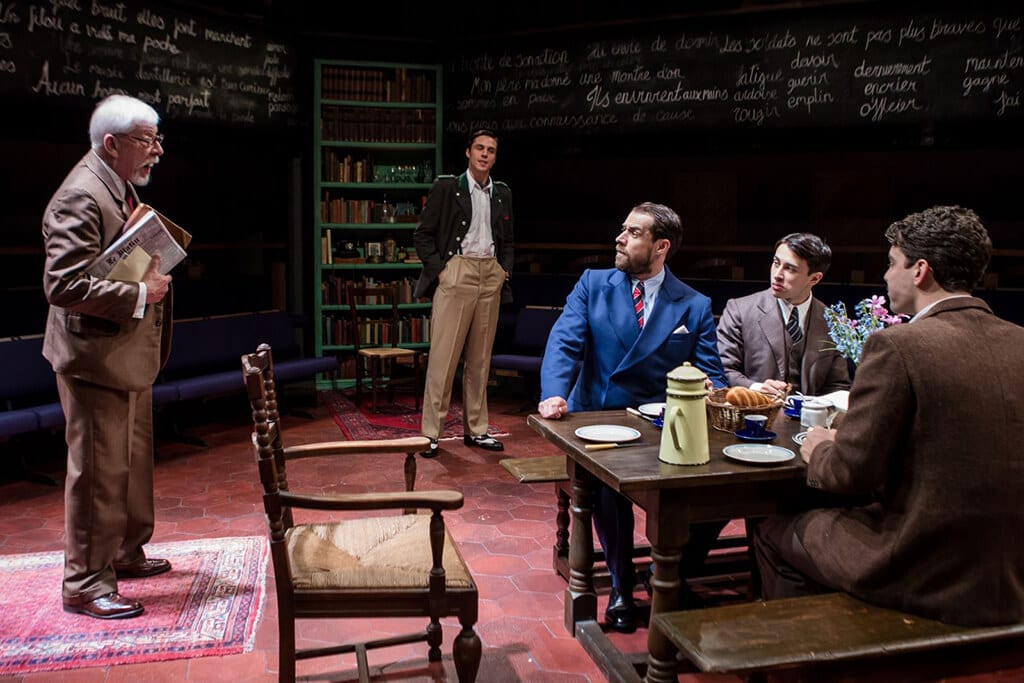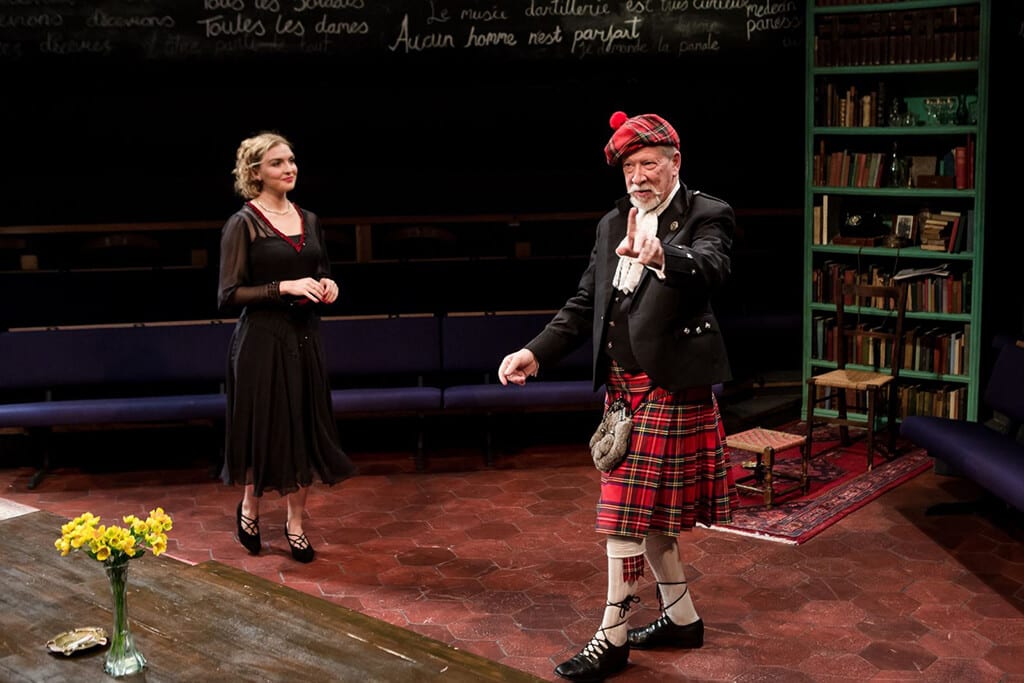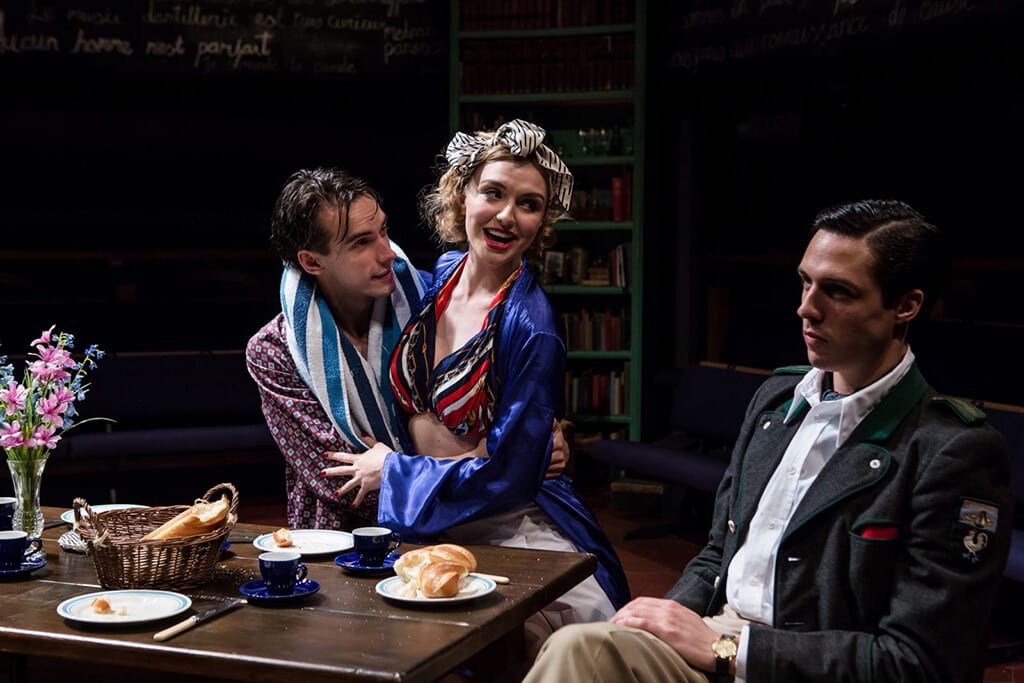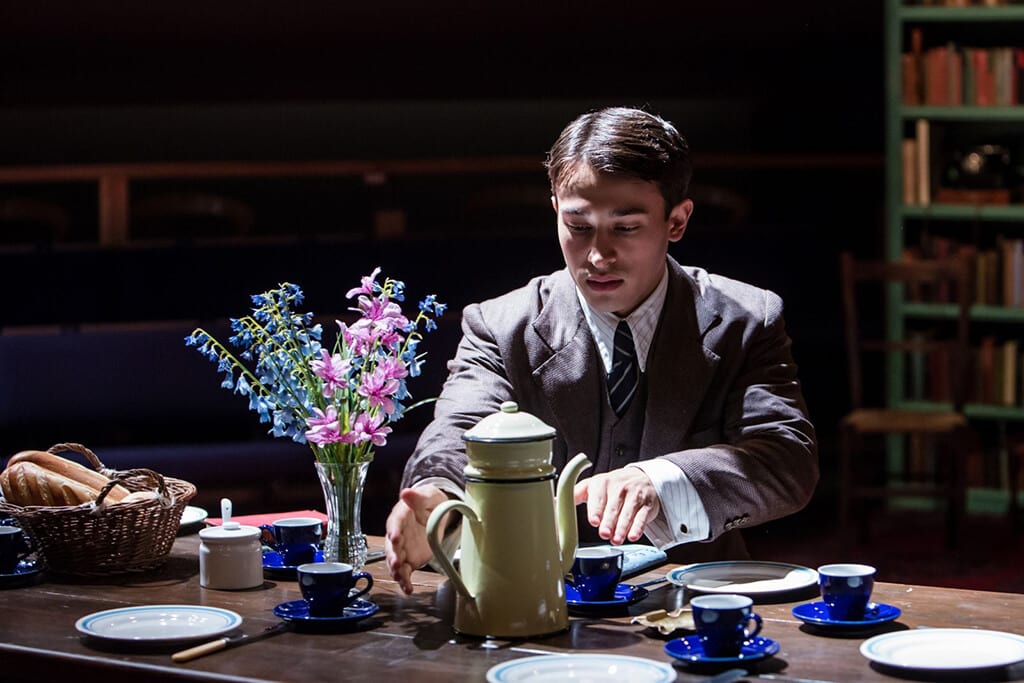There is a lot of Rattigan about in London recently, and rightly so. Few of his fifteen or so plays are without value, several are still hardly known, and a handful rank among the best dramas written in Britain in the last century. His best works rely on an expert sense of structure and plotting, the interplay of a characteristically English emotional constraint with intense passions underneath, and a wry, humane expression of how both the most humdrum and the grandest of lives still share the same epic dimensions of exaltation and disappointment whatever their setting.
What is often forgotten is just what a good comedic writer Rattigan is too. His first early success, French Without Tears, produced when he was only 25, is already a beautifully constructed piece, and full of verbal wit and humour of situation that shows how he could have developed his stagecraft in the manner of Coward’s light comedies, had he so chosen. The language and tone of the play is in some respects dated, but with a good cast that plays it with the utter seriousness that the best comedies require, then it still will reach new audiences. So it is with the new production at the Orange Tree, which it is hard to imagine being bettered.
The action takes place in the living room of Monsieur Maingot’s French crammer on the West coast of France in 1936. As usual at the Orange Tree, we are seated in the round, with two of the corners of the stage as entrances, and a scatter of furniture with a main focus on a large dining table around which most of the action takes place. It is a flexible space, well suited to enabling the pace that the more farcical episodes of this play demand. There is an expertly crafted tiled floor, so good it seems a shame it has only a short life as a theatre set, and blackboards chalked up with French language exercises clad the balcony. The costumes have a comfortable, elegant period feel to them in which the actors evidently feel at home.
This is a light, frothy ensemble piece which can only succeed if all pull together, but all the characters have their own moments to shine as well, just as singers have arias. There is plenty of joshing humour about learning French, and a lot of public school campery that serves to disguise male anxiety and social awkwardness around women. If the language seems awkwardly misogynist to our ears it is only so on the surface – underneath the jokes are very much at the expense of the men. There are moments of edgy poignancy and cruelty too, but Rattigan veers away from developing them, and sticks with the comic mainstream.
The key role is that of femme fatale, Diana Lake, and all credit to Florence Roberts for playing the role without any attempt to garner sympathy. Her duelling with her female counterpart, Jacqueline, (Beatriz Romilly) is delectable, and the slow burn romance with Ziggy heath’s Alan Howard, the only man who really sees through her, is expertly realised, reminding you at times of Dangerous Liaisons.
The other young males flit around her like moths, but are well differentiated from each other, especially Joe Eyre’s wistfully romantic Kit Neilan, and Tim Delap’s no-nonsense sailor, the bluff and buff Commander Rogers. David Whitworth’s imitation of a pedantic professor is delightful too, especially when he abandons all pretence at dignity at a fancy dress evening. Paul Miller’s unfussy direction trusts the play, and builds a shrewdly judged pace so that all of the comic climaxes build cumulatively on one another.
All in all this is a delectable, inventive yet respectful revival of a classic comedy that guarantees a rewarding theatrical night out. Not to be missed.




